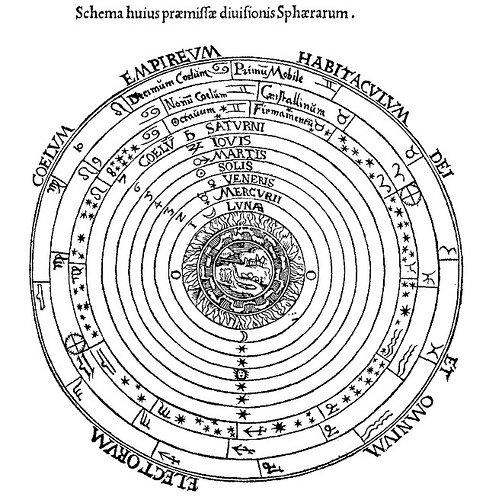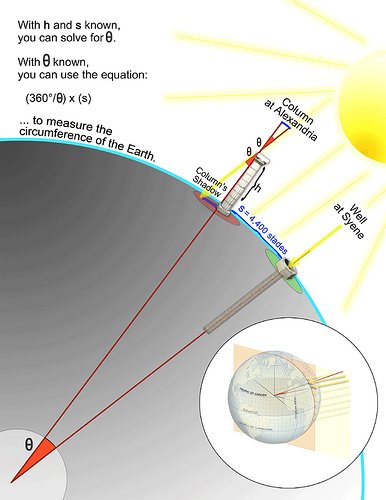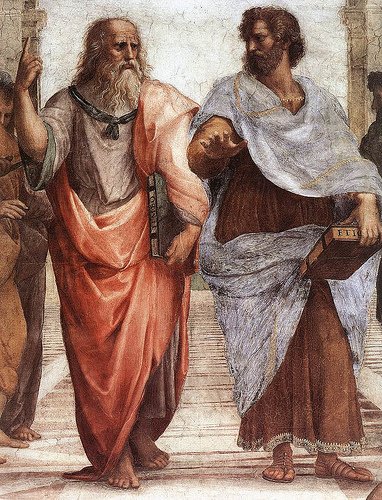The Fundamentals of the Universe Through Philosophy and Politics: First Part (The Fundamentals of the Universe through Philosophy and Politics: Part 1)
If there is an area in the study of the universe that has truly captivated me, it is the historical elements that have led us to where we are right now. Through several centuries of humanity, there have been philosophical and political implications that have molded our knowledge into what we know about and beyond our little blue marble. When learning about the history of science, many are surprised to discover that the first "title" for scientists was actually natural philosophers. Just to think, these guys philosophized about nature in the way it works and the laws that are attributed based on nothing but observations and their thoughts. One of the most famous natural philosophers was Plato whose writing includes the dialogue of Timaeus, which was intended to explain the universe in the context of nature, property and creation. Although in the formation of Plato's universe there were certain things that he could only explain using metaphysical terms such as the Prime Mover and the Creator, there were central issues such as how the disorder order was produced and examined in different disciplines. This was one of the first examples in which an application of mathematical properties known as Platonic solids was used to describe the formation of our universe, together with the use of the metaphysical elements in which he wrote much of.

It was believed that there were five Platonic solids in accordance with the five elements of the universe: fire (tetrahedron), earth (cube), air (octahedron), water (icosahedron), and cosmos (dodecahedron).
Plato's ideas influenced his student Aristotle to look at the Universe in greater depth. Through the scientific method in which he conceived, Aristotle created a spherical universe including: the Earth in the center, the moon, the wandering stars (planets), a sphere of fixed stars and, finally, a sphere for the Prime Mover. In this Aristotelian and teleological way of explaining the Universe, a brand was left until the time of Copernicus. For me, it is always fascinating to read how these natural philosophers had these profound theological opinions when they looked to the sky, while the battle between religion and science has become a modern riddle where the two sides (usually) are very divided. Although we now know that Aristotle was wrong in thinking that the Earth was unique, perfect, and at the center of the Universe, the idea of
a Prime Mover transcends over the centuries and it is up to Galileo that we learn that these paradigms are incorrect. That's about 800 years in which that incorrect paradigm was reigning!

Unfortunately, I can not translate to Latin very well, but this image is what can put the "old way" of thinking in perspective.
It is very important to remember that all this was done by the philosophers who only made observations. The telescope was not invented until the beginning of 1600 and it was not until the year 276 BC that Eratosthenes (Greek scientist / mathematician) came and applied mathematics with a heavy role to the Universe. This was through the method that Eratosthenes used to measure the size of the Earth during the summer solstice around 240 BC. He used "stadias" as his distance units, so we will never know if he was at the closest of 1% or 16% of the correct circumference. This is impressive considering that I use algebra and pretty basic geometry to measure the earth with little tools! Around the time when we were discovering the circumference of the Earth, Aristarchus was busy changing the whole model through calculations between the relationship of the Earth, the moon, and the sun. Realizing that there was no observable parallax, he began to believe that the stars were much further away than he had previously thought and then he changed our universe to be heliocentric.

Obviously this is a-little-out of proportion but the simple geometric implications are what matter.
Although this is a very brief overview of the beginnings of the universe as we know it today, it is important to take into account how much philosophy has influenced our results. In our modern time, we generally think of philosophy as the wandering of the mind and the postulation that occurs when we ask questions such as "what is the meaning of life", do we have free will "and" is there life after the death?". In the beginning of human civilization, this was the case, but the basis of science was being formed. The observation, hypothesis, and the data that was collected promoted the modules that these natural philosophers were applying to be true of our surroundings. Mathematics then entered the modules and strengthened their theories throughout the beginnings of algebra and geometry. In the following blog we will focus more on how the philosophical implications are turned in the political direction around the time of the last Aristotelian cosmologist, Copernicus.

Although they look quite serious here, the philosophers went beyond dialogues about life and death. Sometimes they took the time to simply look at the stars and be amazed.
In this great platform there are great bloggers who present great works that feed us with information and learning, then I will name only some of them that I recommend to visit and follow, they are
@steemdiffuser @silentworld @drotto @hr1 @blue @postpromoter @velimir @burnpost @acidyo @steemdiffuser @silentworld @haejin @elguille @mrzeroo @matt-a @wartes @clud1 @facttechz @catherinegairard @surprisebit @timothyb @pharesim @justtryme90 @glitterfart @hendrikdegrote @handmade @liberosist @curie @pharesim @anwenbaumeister @kushed @meerkat @jodipamungkas @archdruid @blakemiles84 @dan-bn @jasimg @funnyman @munawar1235 @songsina @jlufer @slider2990 @free999enigma @pal @modernzorker @minnowpond @cmtzco @steem-marketing @daydayup @free999enigma @todderic @bitgeek @steem-id @coolguy123 @jasimg @liberosist @meerkat @boombastic @barrie @playfulfoodie @thegamechasers @howtostartablog @erangvee @beatemups @gamesack @rgt-85 @donkeypong @analisa @kevinwong @meerkat @rerez @playfulfoodie @opaulo @theb0red1 @arconite @erangvee @ moon32walker @mammasitta @pcsg-dev @steempunknet @ausbitbank @pharesim @playfulfoodie @crimsonclad @howtostartablog @discordiant @thinknzombie @team. Just name a few but I recommend that you follow the work of each of them, and thank you very much for the support.